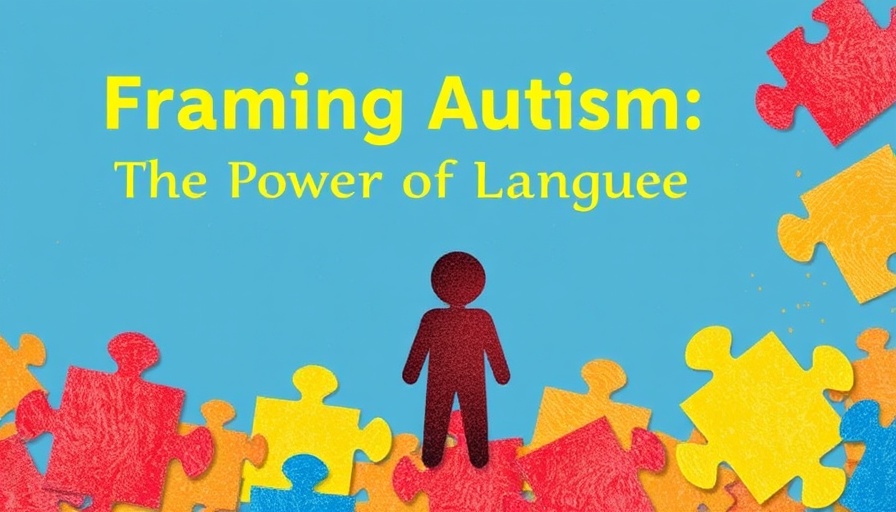
Understanding Autism Through Language
Autism, a complex neurodevelopmental condition, affects how individuals perceive the world and interact with others. The language we use to describe autism plays a crucial role in shaping public perception and influencing the experiences of those on the spectrum. From framing autism as a 'disorder' to recognizing it as a 'difference', the vocabulary can either marginalize individuals or empower their unique identities.
The Impact of Terminology on Perception
The way autism is framed impacts not only societal attitudes but also the self-perception of those affected. Describing autism using negative or pathological terms can perpetuate stigma and lead to feelings of self-doubt among individuals with autism. On the other hand, using person-first language such as 'person with autism' emphasizes their humanity, which can foster acceptance and understanding.
Historical Context of Autism Framing
Historically, autism has been framed through a medical lens, often focusing on deficits and challenges. This view created barriers for individuals seeking support and acceptance. However, over the years, advocacy and awareness campaigns have shifted the narrative, emphasizing neurodiversity, which promotes the understanding of autism as a natural variation of human cognition.
The Role of Media in Shaping Narratives
Media portrayals have a significant influence on how autism is understood in society. Unfortunately, many films and television shows tend to depict autism in a stereotypical light, often highlighting extreme behaviors. These representations can skew public perceptions, leading to misinformation and a lack of understanding. Advocates call for diverse and accurate representations that reflect the rich spectrum of experiences individuals with autism face.
Social Implications of Framing Autism
The social implications of language and framing extend beyond individuals with autism to their families, educators, and the broader community. Families may feel isolated due to societal stigma attached to autism. Educators and healthcare providers, on the other hand, equipped with a better understanding, can implement support strategies that are rooted in acceptance and empowerment rather than limitation.
Current Trends in Autism Advocacy
Modern autism advocacy focuses on community outreach, mental health education, and encouraging early intervention strategies. Initiatives are increasingly emphasizing mental health awareness, recognizing that individuals on the spectrum may also experience anxiety disorders, depression, and stress-related challenges. Support groups and community forums provide a backing for individuals and families, creating spaces for dialogue and shared experiences.
Future Directions in Autism Understanding
Looking ahead, it is crucial to continue evolving our understanding of autism through thoughtful and inclusive language. Embracing frameworks that celebrate neurodiversity can lead to stronger, more resilient communities. Policymakers and educators alike need to champion language that fosters respect, inclusivity, and understanding to pave the way for future generations.
For families and professionals involved in education and care settings, it is vital to stay informed about the language we use when discussing autism. Join local support groups, participate in training, and utilize resources that advocate for neurodiversity to cultivate a more understanding and supportive environment. By actively engaging in conversations around framing autism, we can contribute to a culture of acceptance and inclusion.
 Add Row
Add Row  Add
Add 




Write A Comment